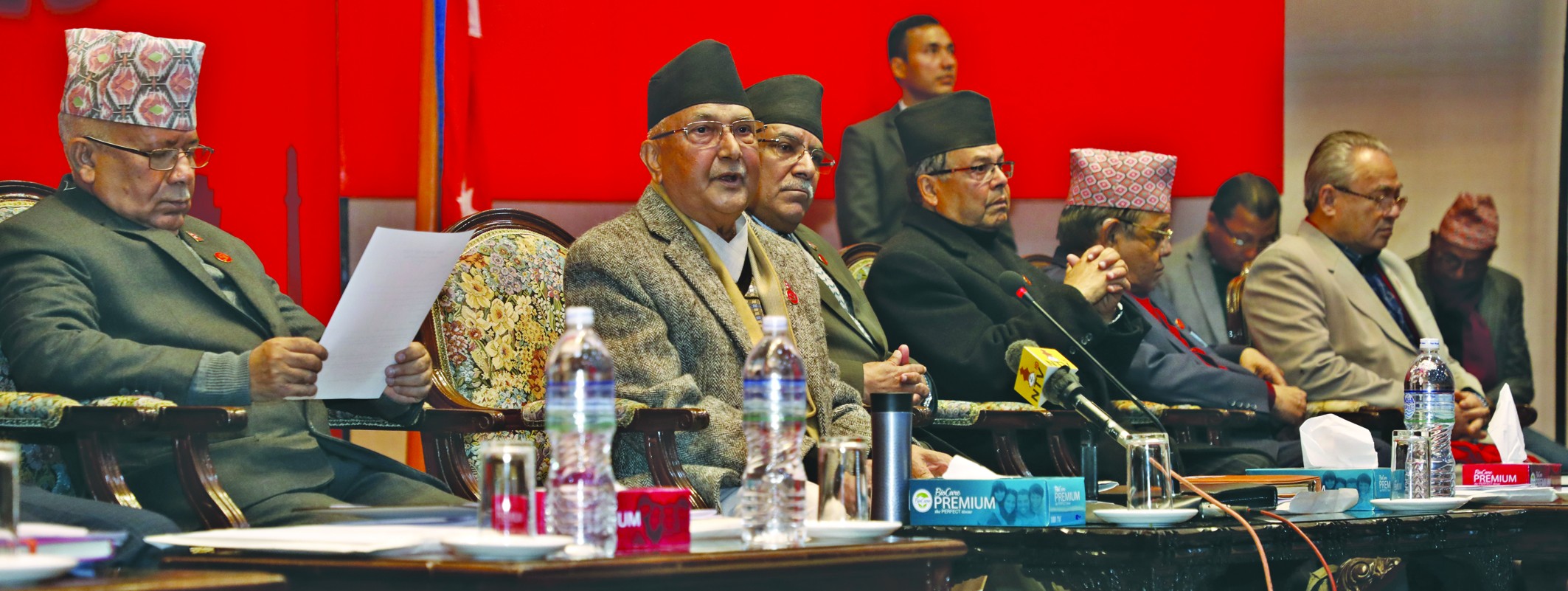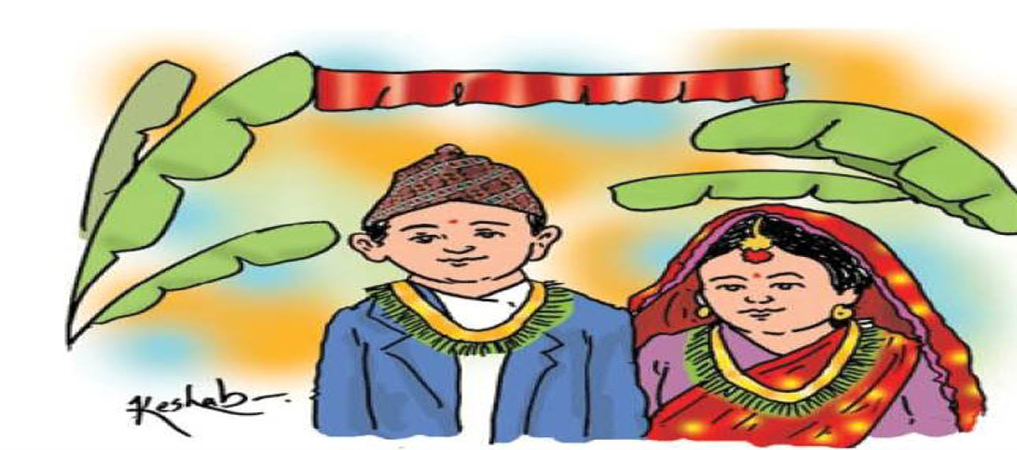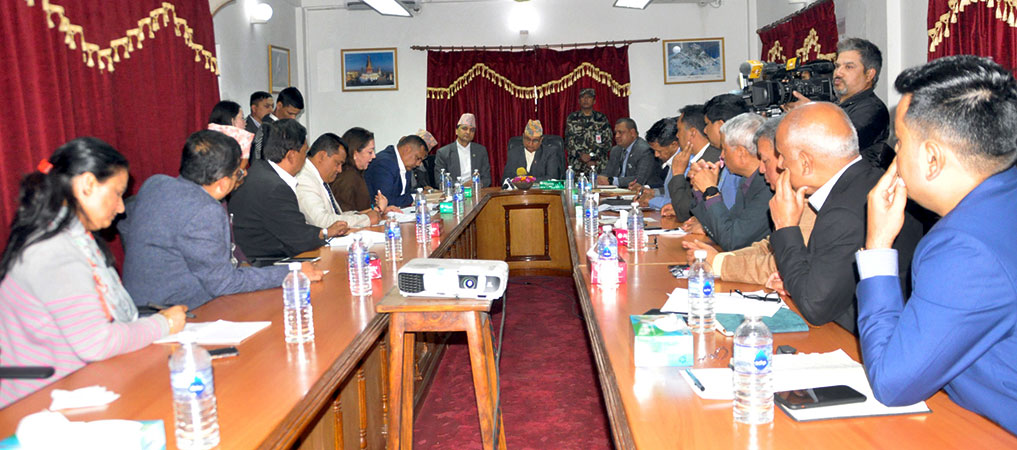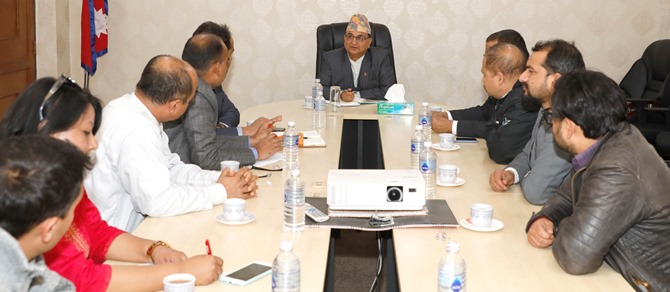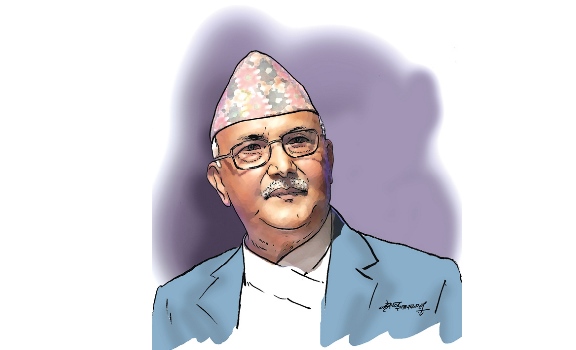Sex change surgery of Nepali ends in death

By Arpana Adhikari
Kathmandu, Feb. 16: A Nepali transsexual (male-to-female) has died after undergoing a sex reassignment surgery (genital surgery) in India on Thursday.
A 24-year-old man from a district adjoining Kathmandu, who wanted to be a woman and had changed her name to Muskan, has died of heart failure 15 days after she underwent the surgery.
Muskan underwent genital surgery at Paras Hospital and Maternity Center in Lucknow, some 17 days ago, said Pinky Gurung, president of Blue Diamond Society, an alliance of third gender.
As per the death certificate, she died of heart attack, said Gurung, adding that sex-change surgery is always risky, complicated and expensive. On condition of anonymity, a person who accompanied Muskan to Lucknow, said, “She had a successful surgery and she was very happy to get the body she always wished to have. But suddenly, her heart beat started to drop. Doctors suggested her to take a complete bed-rest.”
After being confined to bed for almost 15 days, she wanted to walk for a while. But after she took a few steps, she complained of having severe muscle cramps and shortness of breath, the same person said.
“After a few hours, she was declared dead.”
In fear of being excluded, Muskan was yet to disclose her gender identity to her family, said Pinky. She had also collected money for the surgery by lying to her family, who were unaware about her gender. Her body was brought to Kathmandu on Friday for last rites and the society informed her family about the death.
Though this is the first death case of Nepali transgender caused by the sex-change operation, the person opting for sex-change surgery and hormone therapy are always at risk of developing multiple health issues, said Gurung, who was assigned male at birth but identifies herself as a woman.
“I developed multiple health issues after using hormone therapy for three years to change my body to match my gender identity. Now I have got hypertension, diabetes and thyroid and there is no escape from it,” she added.
It is very difficult to know how many people in Nepal have sex reassignment surgery, said Pinky Gurung, adding that there might be around 50 people who went through this surgery. And around 1,000 transgender people have been taking hormones to help them develop secondary male/female characteristics, she added.
According to her, one has to spend at least Rs. 300,000 to go through this surgery.
“Nepal doesn’t have medical expertise for this surgery and one who opts for this is compelled to visit India, Thailand and other countries.”
As the sexual minorities of Nepal are socially and economically backward, not all can afford this expensive procedure and for some people who can afford, their health conditions and social barriers don’t allow them to change their sex even if they want to, she said.
However, she is worried that the imprudent decision of the government some day could force the community to opt for this surgery, if the draft of the bill to amend the Citizenship Act is approved in its current form.
The provisions in the proposed bill state that people need to present a proof of sex change if they want to change their gender identity in the citizenship card contradicting with the current provision which allows people to choose male, female and others in citizenship card and other documents.
The rights activists of the community have been claiming that such provisions may create unnecessary burden in the community and have been advocating for making amendments to this provision.
Peter Tamang, a gay activist, said the government was making the process of acquiring the citizenship more complicated for third gender. Such conditions are the manifestation of the State’s narrow mindset towards the sexual minorities.
“Not everyone can afford or would want to undergo a sex change surgery like me,” said Peter.
According to the rights activities, they have already knocked the door of authorities for the amendment but all their efforts have been in vain.
The provision also contradicts with the Constitution, which treats every citizen equally regardless of their gender, said Pinky.
In 2007, the Supreme Court also ruled that citizens were entitled to select their gender identity based on self-feeling.
“Everyone should understand that gender is deeply felt by an individual,” said Pinky, adding that such obligatory provision should be removed.
Recent News

Do not make expressions casting dout on election: EC
14 Apr, 2022
CM Bhatta says may New Year 2079 BS inspire positive thinking
14 Apr, 2022
Three new cases, 44 recoveries in 24 hours
14 Apr, 2022
689 climbers of 84 teams so far acquire permits for climbing various peaks this spring season
14 Apr, 2022
How the rising cost of living crisis is impacting Nepal
14 Apr, 2022
US military confirms an interstellar meteor collided with Earth
14 Apr, 2022
Valneva Covid vaccine approved for use in UK
14 Apr, 2022
Chair Prachanda highlights need of unity among Maoist, Communist forces
14 Apr, 2022
Ranbir Kapoor and Alia Bhatt: Bollywood toasts star couple on wedding
14 Apr, 2022
President Bhandari confers decorations (Photo Feature)
14 Apr, 2022


